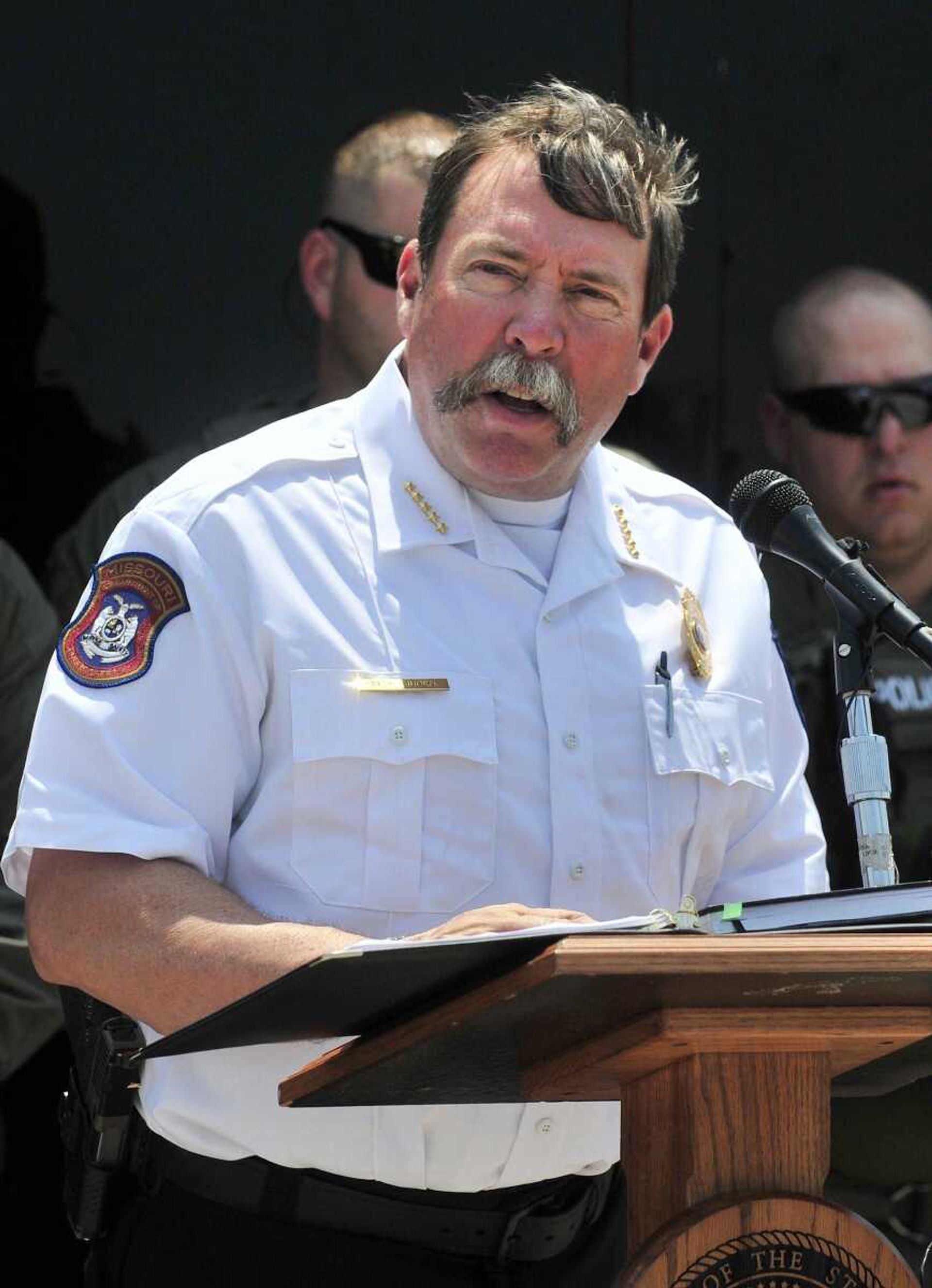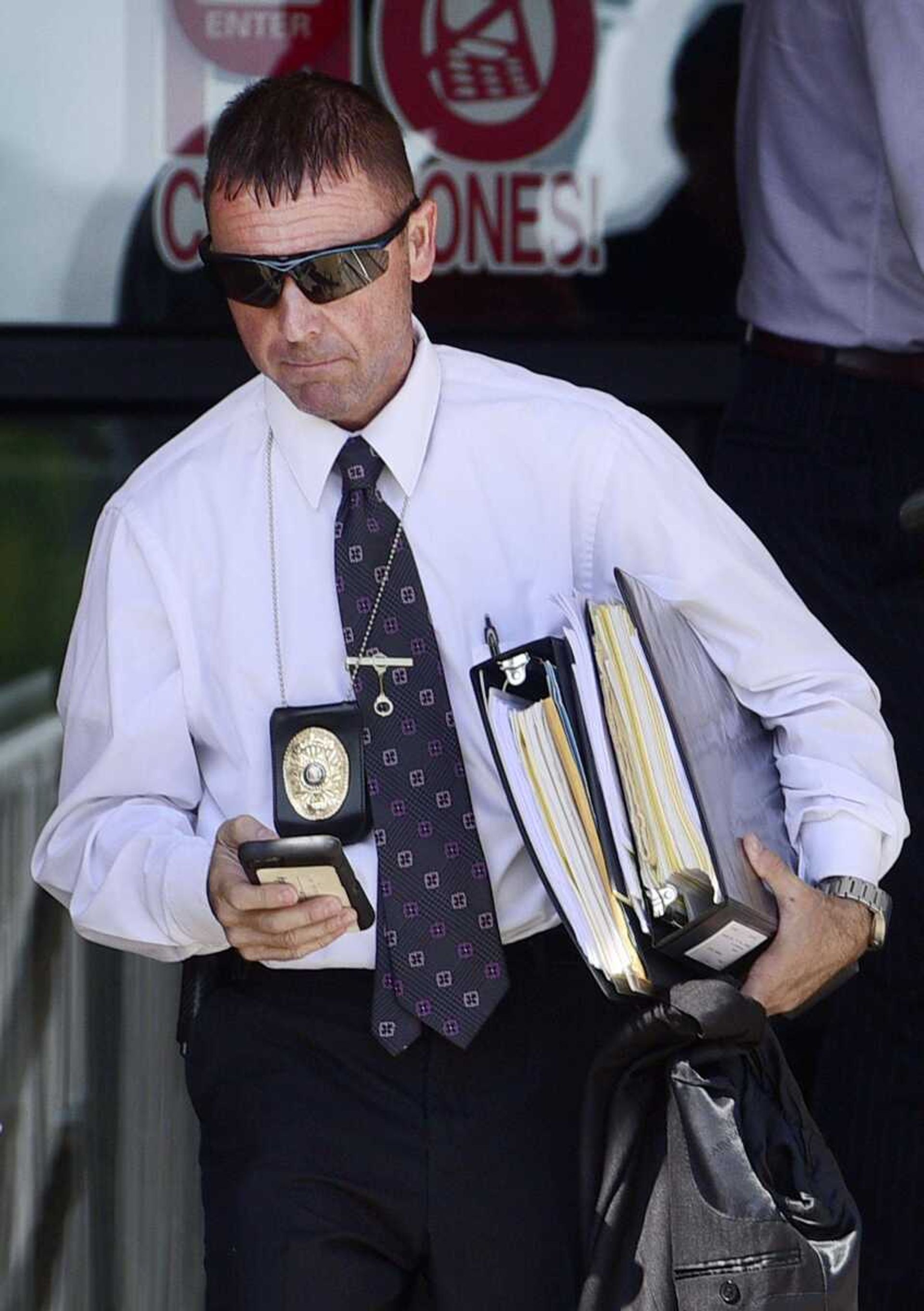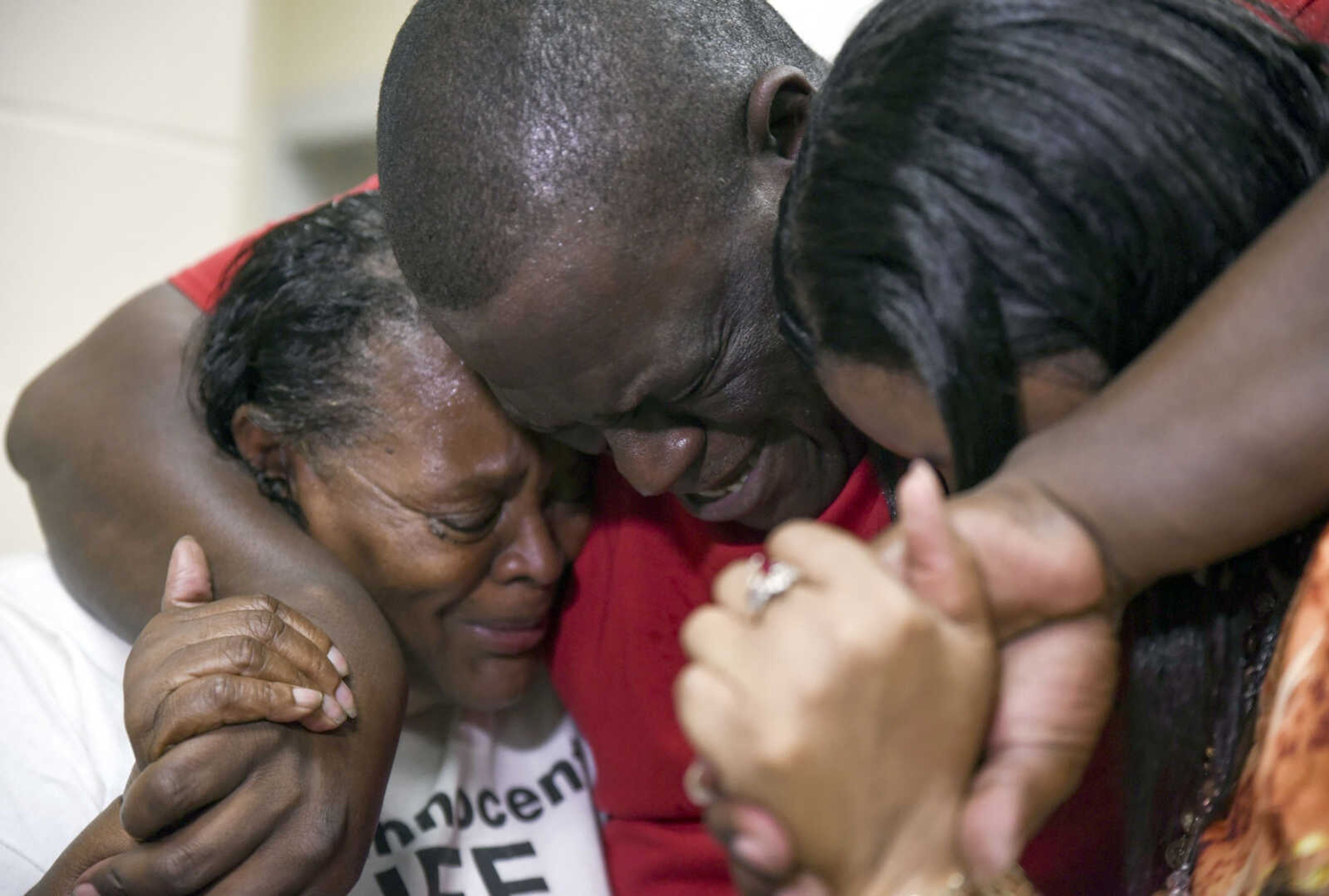David Robinson has filed suit against City of Sikeston, former police officers in his wrongful conviction
David Robinson and his attorneys filed a blistering lawsuit Monday alleging multiple examples of witness intimidation, conspiracy and several direct and indirect actions over a decade leading to the wrongful conviction and continued incarceration in a Sikeston, Missouri, murder case. These actions kept Robinson in prison for 17 years prior to his exoneration...
David Robinson and his attorneys filed a blistering lawsuit Monday alleging multiple examples of witness intimidation, conspiracy and several direct and indirect actions over a decade leading to the wrongful conviction and continued incarceration in a Sikeston, Missouri, murder case.
These actions kept Robinson in prison for 17 years prior to his exoneration.
The 42-page document, filed in federal court, names the City of Sikeston, John A. Blakely and Charles Andrew Juden III as defendants. Blakely, lead detective in the case, eventually resigned under pressure last year and now works at the Missouri Division of Family Services.
Juden, Sikeston police captain at the time of the Sheila Box murder in August 2000, was named chief shortly thereafter and, in January 2017, was appointed by then-Gov. Eric Greitens as director of the Missouri Department of Public Safety. (Greitens resigned and Juden was forced out by Greitens’ successor, Mike Parson in August 2018.)
The lawsuit, though a civil action, alleges the Sikeston department and the individuals broke laws and ethics to frame Robinson. It does not seek a specific dollar amount in damages.
“The Sikeston Police Department, Blakely and Juden constructed a case to convict Robinson and get Robinson off the streets, because they did not like him, even though they possessed information that Robinson did not kill Sheila Box,” the suit alleges. Not only does the lawsuit claim Blakely ignored exculpatory evidence before trial, the police “played an integral role in preventing Robinson’s wrongful conviction from being overturned in 2004 and again in Cole County in 2015 and causing him to continue to be incarcerated for an additional 13 years.”

Lawsuit’s allegations

- During the arrest, then-Capt. Juden placed his gun on the side of Robinson’s head and threatened to shoot him.
- A test for gunshot residue Aug. 6, 2000, the night of the murder, on Robinson found no gunshot residue, yet DPS still pursued him as a suspect.
- Blakely waited to interview witness Albert Baker (who later recanted) three days after being told he had information about the case before approaching him in the middle of the night. Baker signed a witness statement prepared by Blakely. The statement was false, “and Blakely knew that it was false. It was procured through Detective Blakely’s intentional, late-night coaching of Baker to implicate Robinson.”
- Blakely and then-prosecutor Christy Baker-Neal rewarded Baker by releasing him on his own recognizance “just hours after he gave Blakely his statement” even though “Baker had not been able to post bond for days” for his role in stealing air conditioners.
- Blakely gave Baker, a crack addict, $50 in cash the morning of his release, and additional cash payments from $10 to $100 on six different dates. Blakely later claimed those payments were made as part of a witness protection program, but some were listed as payment for information. Blakely also arranged for Baker to live in an apartment in Perryville, Missouri, pushing the total compensation to Baker to several thousand dollars.
- Blakely and Juden knew witness Jason Richison never shared a cell with Robinson, knew he was a paranoid schizophrenic (according to court documents) who attempted suicide in jail and knew Richison committed perjury at trial when he testified he was a cellmate.
- Blakely knew Romanze Mosby, who later confessed on tape he shot Sheila Box, was a suspect before Robinson’s trial, but ignored that information, and let another jurisdiction follow that lead. The suit states Blakely was already investigating Mosby in other shootings along with his brother, but did not have a gun provided by Mosby tested against evidence in the Box murder.
- Blakely intimidated a key defense witness in the case, calling Ronald Coleman before trial and telling him if he showed up for trial, Coleman would be charged with drug offenses. Coleman, prepared to testify Baker told him he was lying about seeing Robinson shoot Box, did not show up to testify.
- When learning Baker was going to recant his testimony in 2004, “Blakely arranged for a uniformed officer in Park Hills, Missouri, to find Baker. While Baker was walking down a street in Park Hills, the officer drove up to Baker and handed him a telephone with Blakely on the other end.” Baker testified Blakely told him “We are watching you.” Baker testified he was intimidated to not testify in 2004 and instead stuck to his original testimony. In court, Blakely acknowledged the phone call occurred, but denied making the comment. The special prosecutor of the case, Elizabeth Bock, a deputy attorney general for the state, had expressly told Blakely not to contact Baker, but he ignored her direction, according to testimony.
- Richison claimed he testified he overheard Robinson confess to the murder while in Scott County Jail after receiving threats by Sikeston police. He said his testimony was “false and coerced by the police,” according to the lawsuit. Richison testified police “schooled me on what to say and how to say it.”
“The foregoing acts and omissions of defendants were deliberate, reckless, wanton, motivated by evil motive or intent, done in bad faith and/or involve callous indifference to Robinson’s federally protected rights and therefore justify an award of punitive damages,” the lawsuit states. “... The individual defendants Blakely and Juden and others yet unknown agreed among themselves and others to act in concert to deprive Robinson of his clearly established constitutional rights as protected by the Fifth and Fourteenth amendments, including his right not to be deprived of liberty without due process of law.”
The lawsuit also accused the city of not having the proper training and techniques in place to prevent such injustices, “because policymakers with authority over the same exhibited deliberate indifference ...”
Testimony
No physical evidence ever linked Robinson to the crime. Robinson had many run-ins with law enforcement and had a felonious record before being accused of Box’s murder. He was a known brawler, but had served his time for previous crimes. He had several witnesses place him at different places on the night of the murder, from a family fish fry to a wedding reception party, and a party at a hotel in a nearby town. But he was in and out of those places, and testimony from different witnesses was contradictory.
Robinson was convicted solely on the testimony of Baker and Richison.
Blakely’s testimony changed over the years regarding his investigation of Mosby. At one point, he testified he was unaware Mosby was a suspect. Later, after a newspaper investigation revealed a pretrial conference in which a county deputy said he told Blakely and others about the Mosby tip, Blakely admitted he knew Mosby was a suspect, but thought someone else was looking into it. The former deputy testified at the time Sikeston DPS was not interested in following the lead, adding he thought they had “tunnel vision.” The deputy, Bobby Sullivan, conducted his own interviews, discovering some finger-pointing among Mosby and other witnesses. The tapes were subsequently lost by the Missouri Attorney General’s Office.
Mosby’s confession lined up with other testimony supporting where the shooting took place; Baker’s story did not.
Responses
Sikeston city manager Jonathan Douglass said in a brief statement to the Southeast Missourian on Monday, “The filing of a civil suit by Mr. Robinson and the Bryan Cave Law Firm is not unexpected. Our Sikeston city attorney and other legal counsel will review this suit relating to events that occurred almost 19 years ago and will respond appropriately.”
In April last year, the city demoted Blakely following a report by Judge Darrell E. Missey, who was appointed as special master in the case by the Missouri Supreme Court. Blakely remained on the payroll for several weeks in a reduced role on DPS before eventually resigning. Blakely was subsequently hired as an investigator with the Division of Family Services, where he could be called to testify. Blakely’s wife, Tabatha Blakely, is an assistant prosecutor, whose case load consists of sexual assault, domestic violence, child support and family violence cases.
After Missey’s report became public, Douglass called upon the U.S. Attorney’s Office to determine whether the case deserved an investigation. Although the U.S. Attorney’s Office is not technically an investigative body, it could recommend a probe to the FBI. Neither the attorney’s office nor the FBI will confirm or deny active investigations. However, the Southeast Missourian learned last fall no investigation is taking place, when a tipster called the office, but was told no one had been assigned to investigate the case.
Juden, when reached by phone Monday, declined to comment on the lawsuit, but said he sticks by comment he made to the Southeast Missourian in July 2017, when he appeared with Greitens at an event at the Cape Girardeau Regional Airport. At that time, he denied all knowledge of allegations made against Blakely in the Robinson trial. Juden told a reporter he did not make a habit of reviewing depositions made by officers under his command in murder cases.
Blakely has denied in court the allegation he threatened Coleman. He could not be reached for comment Monday evening.
bmiller@semissourian.com
(573) 388-3625
Connect with the Southeast Missourian Newsroom:
For corrections to this story or other insights for the editor, click here. To submit a letter to the editor, click here. To learn about the Southeast Missourian’s AI Policy, click here.











